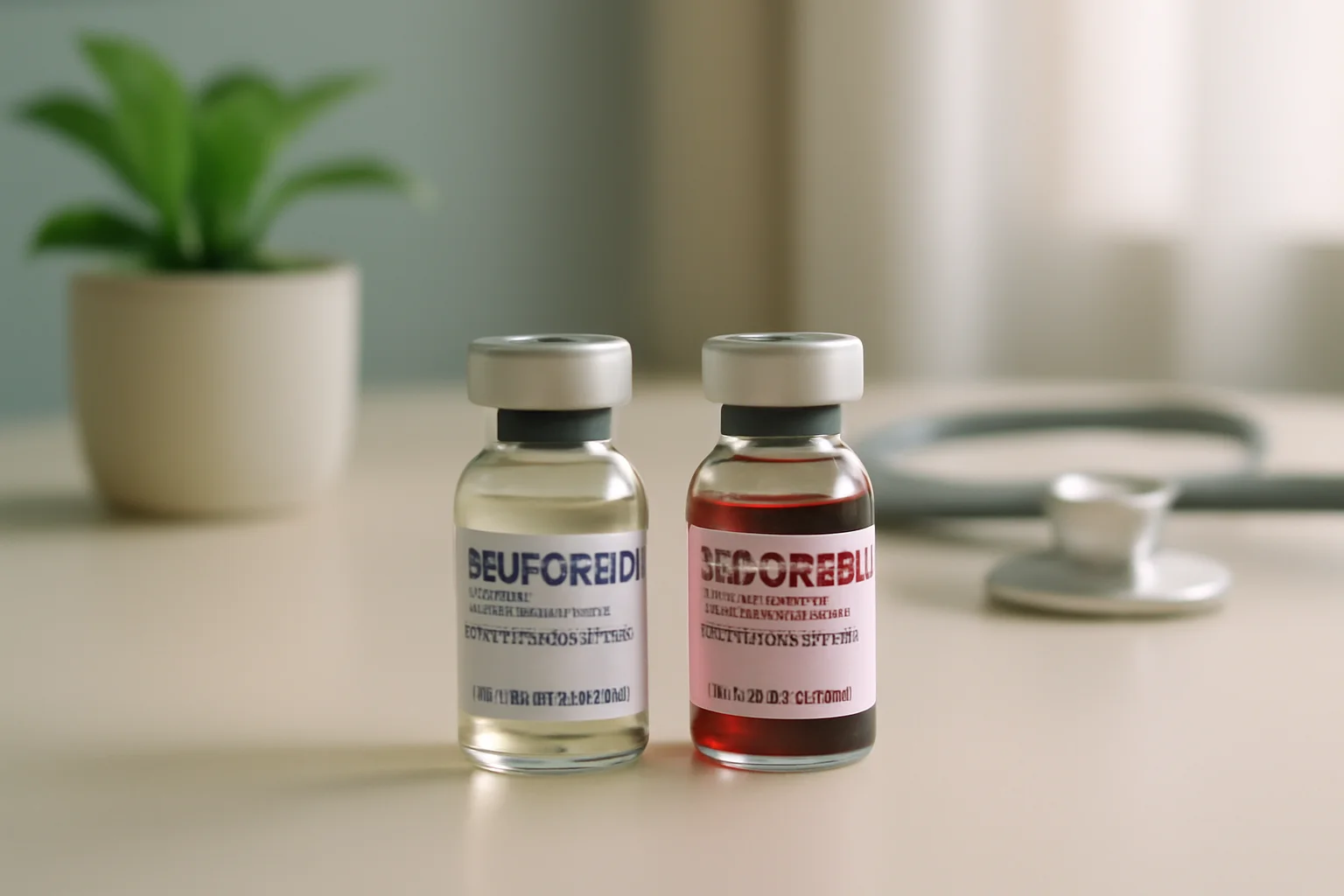
Neurobion and Neurorubin: Differences and Usage Guide
The world of vitamins and dietary supplements often presents various products aimed at supporting the health of the body. B vitamins are particularly important as they play a key role in numerous physiological processes. Neurorubin and Neurobion are formulations that contain a complex of B vitamins, and many seek information about their effects and the benefits of their use.
These dietary supplements are especially popular among those who struggle with various neurological complaints or have an increased need for vitamins, such as during stressful periods. The beneficial effects of B vitamins encompass a wide range, including reducing fatigue and exhaustion, supporting the proper functioning of the nervous system, and aiding various metabolic processes. Supplementing with these types of vitamins may be particularly important due to modern lifestyles, where stress and poor nutrition often overshadow adequate nutrient intake.
Many people look for differences between the two products, and in certain cases, users are unsure which is the most suitable choice for them. The aim of this article is to highlight the differences, advantages, and disadvantages between Neurobion and Neurorubin, as well as to assist in navigating the world of B vitamins.
Neurobion: Composition and Effects
Neurobion is a well-known B vitamin complex that primarily contains vitamins B1, B6, and B12. These vitamins work synergistically to support the body’s nervous system and metabolic processes. Vitamin B1, also known as thiamine, plays an important role in energy production and carbohydrate metabolism. Vitamin B6, also known as pyridoxine, contributes to protein metabolism and the synthesis of neurotransmitters, while vitamin B12, or cobalamin, is essential for the formation of red blood cells and DNA synthesis.
The effects of Neurobion include reducing fatigue and exhaustion, which can be particularly important during stressful periods. Additionally, B vitamins have a positive impact on the nervous system, helping to stabilize mood and reduce anxiety. Regular use of the formulation may also promote improved concentration and enhanced memory.
Taking Neurobion is especially recommended for those with an increased need for B vitamins, such as vegetarians, vegans, or those dealing with various health issues. Furthermore, the older population may also benefit from taking the formulation, as the absorption of B vitamins often decreases with age.
It is important to note that consulting a physician before taking Neurobion is advisable, especially if someone is already taking other medications or has any health issues. Excessive intake of vitamins can also cause side effects, so proper dosing is crucial.
Neurorubin: Composition and Effects
Neurorubin is also a B vitamin complex that contains vitamins B1, B6, and B12; however, differences can be observed in the ratios of the ingredients and the additional components of the formulation. Neurorubin primarily focuses on nervous system issues, such as neuropathy and pain relief.
Thanks to its B vitamin content, Neurorubin also contributes to reducing fatigue, but it is particularly beneficial for the regeneration of nerve cells and the protection of the peripheral nervous system. The active ingredients in the formulation help reduce inflammation and alleviate pain, which can be especially useful for those struggling with chronic pain.
Taking Neurorubin may also be advisable for those dealing with various neurological issues, such as numbness, pain, or muscle weakness. In addition to the positive effects of B vitamins, the supplementary components of Neurorubin, such as mecobalamin, contribute to the protection of the central nervous system and promote more effective transmission of nerve impulses.
As with Neurobion, it is important to consider seeking medical advice before taking vitamins and dietary supplements. A professional’s opinion is essential for determining the effectiveness of Neurorubin and the appropriate dosage.
Main Differences Between Neurobion and Neurorubin
Although both Neurobion and Neurorubin contain similar B vitamins, there are significant differences in the purpose and mechanism of action of the formulations. Neurobion focuses more on reducing fatigue and promoting overall well-being, while Neurorubin has been specifically developed to address neurological issues.
The goal of Neurobion is to support the body’s energy supply and improve mood, which can be particularly important in stressful situations. Through the effects of B vitamins, Neurobion can help improve concentration and memory, assisting with daily activities.
In contrast, Neurorubin targets the protection of the peripheral nervous system and is specifically recommended for those experiencing various neurological complaints, such as pain or numbness. The components of Neurorubin focus on regeneration and reducing inflammation, making it potentially useful for those suffering from chronic pain.
The choice between the two formulations, therefore, depends on the individual needs and health status of the user. It is worth considering which product best meets our needs and always seeking medical advice for appropriate application.
Taking vitamins and dietary supplements alone does not replace professional medical treatment, and in any case of health issues, it is advisable to consult a professional.
**Warning:** This article does not constitute medical advice. In case of health problems, everyone should follow their doctor’s advice.

